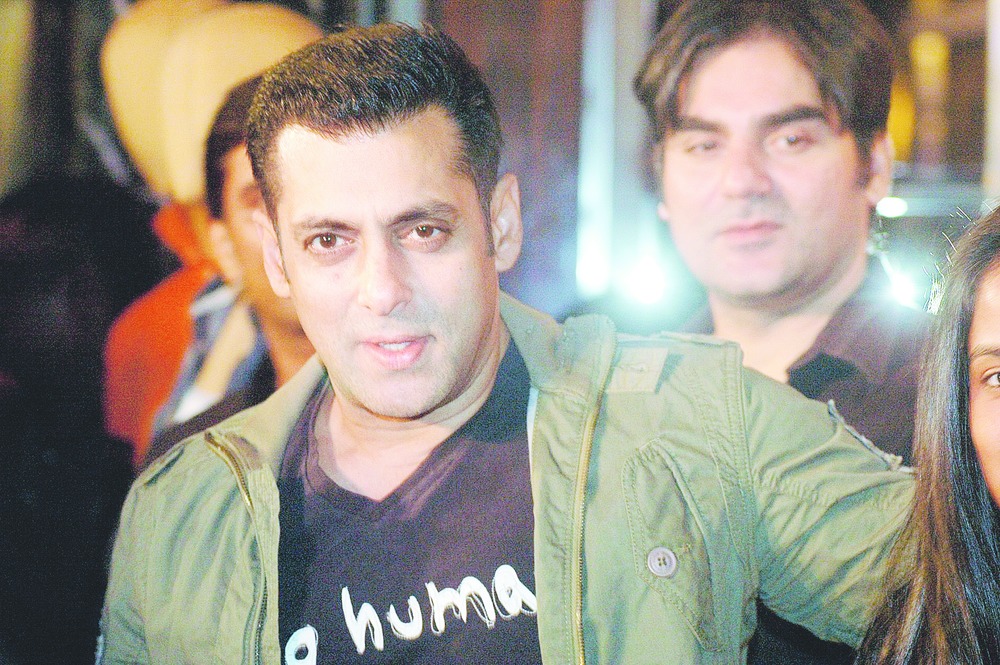
New Delhi, Jan. 24: The Maharashtra government's appeal against Salman Khan's acquittal in the 2002 hit-and-run case cites 46 reasons while seeking to reverse Bombay High Court's judgment that had set aside the trial court's order of conviction.
The appeal highlights the eyewitness testimony of Salman's personal police bodyguard, the late Ravindra Patil, who told a magistrate that the actor had been at the wheel and was drunk.
The actor's SUV had run over pavement sleepers, killing one person and injuring four, prompting his conviction in May last year before the December 10 acquittal.
According to the high court, the prosecution had "failed to establish beyond reasonable doubt" that Salman was drunk and was driving the car.
The judge rejected Patil's statement as "wholly unreliable", saying he had made subsequent "improvements" to his initial statement.
He refused to reject the testimony of Salman's family driver of 22 years, Ashok Singh, who had claimed in the trial court - more than 12 years after the accident - that he and not the actor had been at the wheel.
Some of the points made in the appeal, moved through the state's standing counsel, Nishant Katneshwarkar, are:
• The high court had not considered Patil's evidence "in its proper perspective";
"There is no variance in the version of the complainant (Patil) in the First Information Report, supplementary statement and the deposition," the appeal says.
It adds that Patil had "reiterated the contents" of the FIR that it was Salman who drove the car "in (a) drunk condition in rash and negligent manner", and "stuck to his version as per the First Information Report and the supplementary statement".
• Although Salman "had every opportunity to disclose that Ashok was driving the vehicle, he has disclosed this after 12 years". This has "cast a shadow of doubt on the evidence of (Ashok) and renders the defence improbable".
• Salman had made a statement to a judicial magistrate that it was he who was in the driver's seat when he left the J.W. Marriott Hotel, after which the accident took place.
• The high court had ignored the alcohol examination certificate issued by the assistant chemical analyser, who said that proper procedure had been followed while taking Salman's blood samples.
The certificate shows "the blood contained 0.062% of ethyl alcohol", the appeal says. "The high court has erred in brushing aside" the certificate and "the evidence of the assistant chemical analyser just because there was some alleged delay in taking the blood samples and sending it to the chemical analyser".
• The high court had not considered the report of the road transport officer who, after a "detailed inspection of the vehicle", said the accident was caused not by any mechanical defect but by human error.
"Nowhere in the accident report form is it mentioned that the tyre of the car burst. The accident report form mentions that the front left-side tyre was deflated. Considering the make of the car and type of the tyre, it has (said) on record that the vehicle can move even if the tyre is deflated," the appeal says.
• The high court had failed to consider the post-mortem report of Nurullah Mehboob Sharif (who died in the accident), which said the "upper part of the body of Nurullah was crushed completely".
"The post-mortem report makes it clear that as the vehicle in question was run over on the body of Nurullah, he suffered multiple crushed injuries over his head, neck, chest and abdomen."










